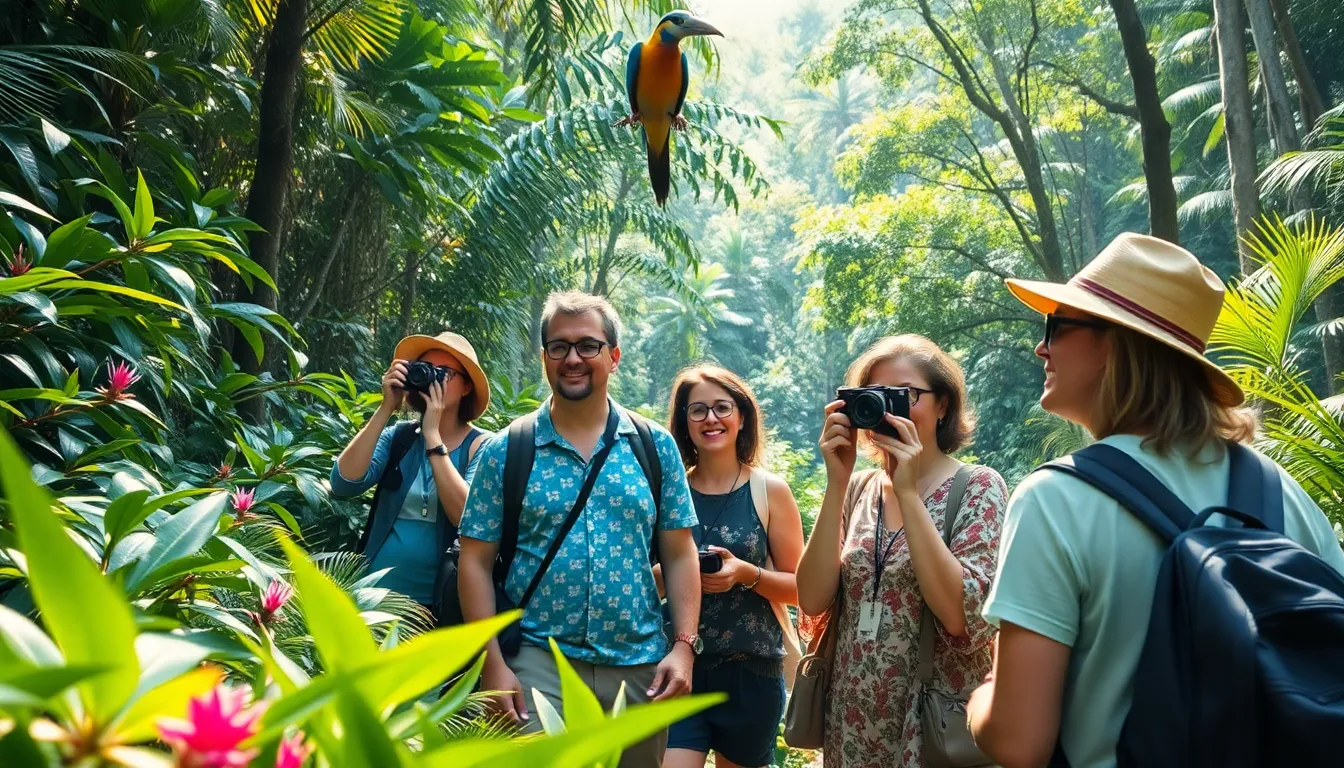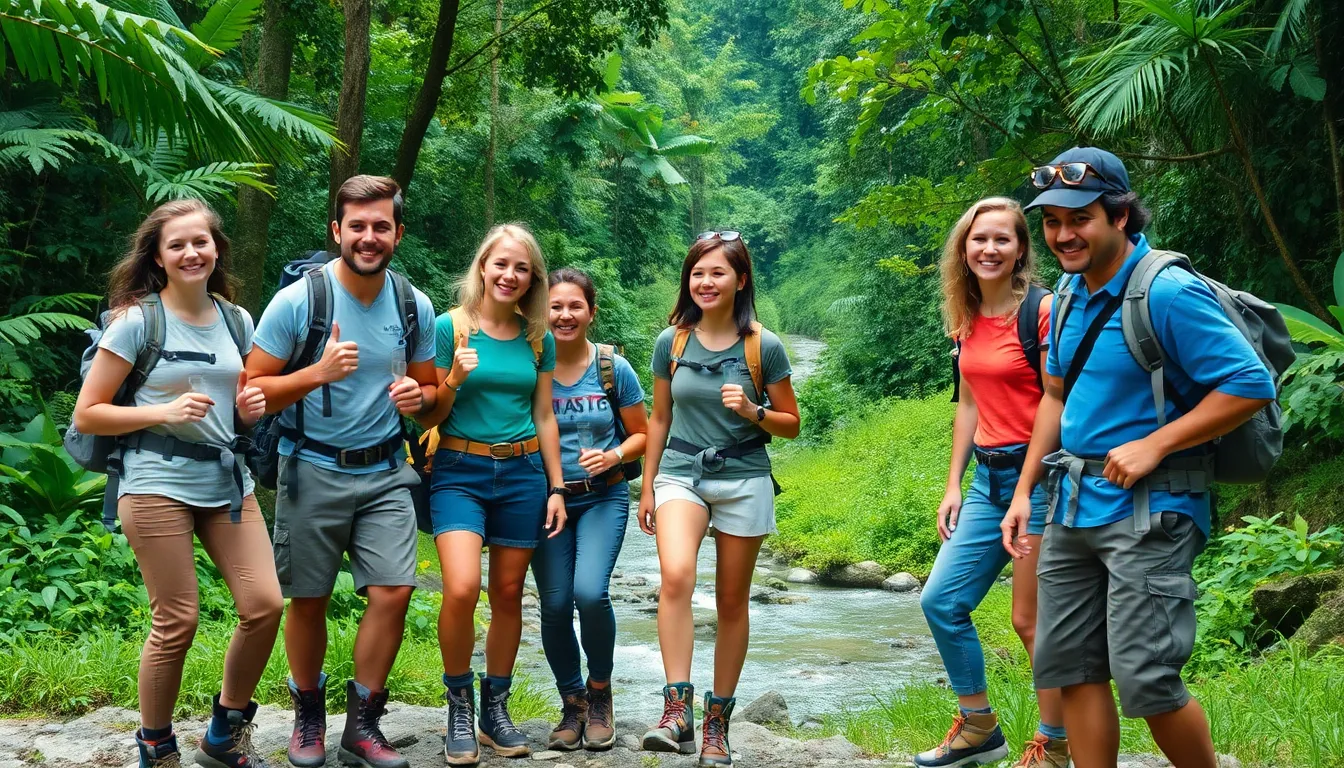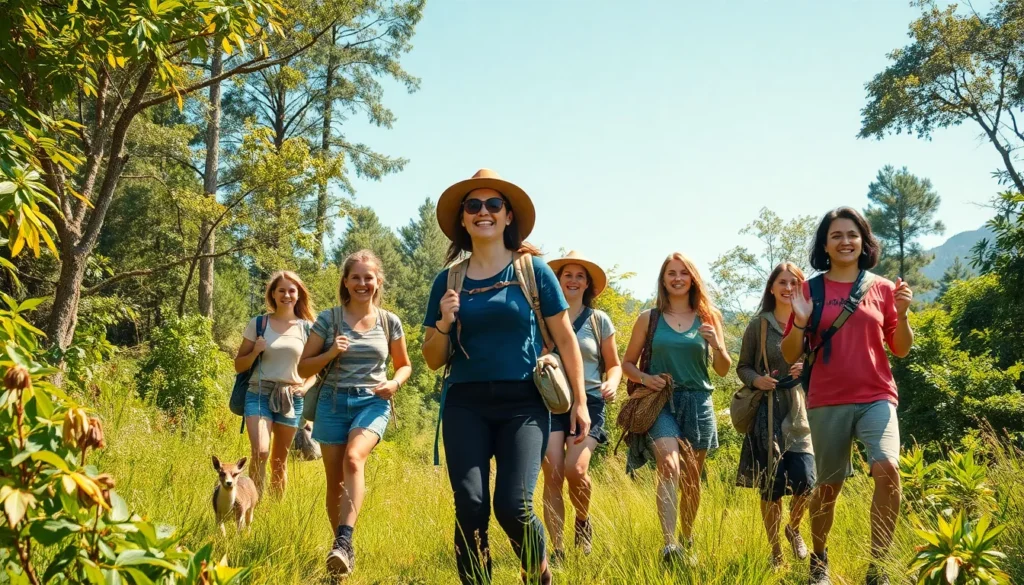Table of Contents
ToggleEcotourism isn’t just a buzzword tossed around at fancy dinner parties; it’s a movement that’s reshaping how people interact with the planet. Imagine exploring lush rainforests while sipping organic coffee, all while knowing you’re helping to preserve that very paradise. In the realm of AP Human Geography, understanding ecotourism means diving into the intersection of travel, sustainability, and cultural preservation.
Ecotourism Definition
Ecotourism involves responsible travel to natural areas, aiming to conserve the environment and improve the well-being of local communities. It fosters an appreciation for nature while promoting sustainable practices.
Key Characteristics
Ecotourism focuses on nature-based experiences, immersing visitors in pristine environments. Education plays a crucial role, with travelers learning about ecosystems and conservation efforts. Local culture engagement enhances the experience, allowing for authentic interactions with residents. Sustainable practices support minimal environmental impact, ensuring resources are preserved for future generations. Economic benefits for local communities arise through tourism, contributing to sustainable development.
Importance in Conservation
Ecotourism significantly contributes to conservation efforts by generating funding for protected areas. It raises awareness of environmental issues, fostering a sense of responsibility among travelers. By supporting conservation projects, ecotourism ensures habitat protection for endangered species. Community involvement enhances conservation initiatives, empowering locals to take part in responsible tourism. These activities ultimately lead to more sustainable land use practices, benefiting both nature and communities alike.
Ecotourism in AP Human Geography


Ecotourism plays a crucial role within AP Human Geography by illustrating sustainable travel’s impact on ecosystems and cultures. This concept emphasizes the balance between economic growth and environmental conservation.
Relationship with Human-Environment Interaction
Human-environment interaction showcases how people affect natural surroundings while also being influenced by them. Ecotourism fosters an appreciation for nature, leading to preservation efforts in vulnerable areas. Visitors engage with local ecosystems, gaining insights into environmental stewardship and cultural practices. Educational experiences encourage travelers to adopt sustainable habits, thereby minimizing their ecological footprints. Partnerships between tourists and communities encourage the sharing of knowledge and resources. By prioritizing respect for local environments, ecotourism helps cultivate a deeper understanding of interdependence between humans and the natural world.
Role in Economic Development
Economic development benefits significantly from ecotourism as it promotes local economies while ensuring sustainability. Visitor spending on accommodations, food, and activities generates essential income for communities. Employment opportunities arise in various sectors, such as hospitality, guiding, and conservation efforts. Communities gain funding for infrastructure improvements and conservation programs through ecotourism revenues. Locally owned businesses thrive as travelers seek authentic experiences, fostering cultural exchange. Support for artisans and cultural sites leads to the preservation of traditions and crafts. In turn, ecotourism helps create incentives for communities to protect their natural heritage while enhancing their quality of life.
Case Studies of Ecotourism
Ecotourism projects worldwide demonstrate responsible travel’s effectiveness in supporting conservation and local communities. These initiatives present valuable lessons in sustainable practices.
Successful Ecotourism Initiatives
Costa Rica exemplifies successful ecotourism with its diverse ecosystems and extensive protected areas. The country’s eco-lodges prioritize sustainability and conservation, drawing millions of visitors annually. Kenya’s Maasai Mara National Reserve showcases community-led tourism where profits support local initiatives. Eco-safaris foster wildlife conservation while providing income to the Maasai people. In the Galápagos Islands, strict regulations promote responsible tourism, preserving unique biodiversity. Travelers contribute to conservation efforts through park entry fees and guided tours, safeguarding the islands for future generations.
Challenges and Critiques
Despite its benefits, ecotourism faces challenges that hinder its sustainability. Overcrowding often threatens fragile ecosystems, leading to environmental degradation. In some instances, local communities may not share equitably in economic benefits generated by tourism operations. Additionally, inconsistent regulations across regions can dilute conservation efforts. Critics argue that commercialization can overshadow genuine conservation aims, resulting in disconnection from local cultures. Addressing these issues is vital for maintaining ecotourism’s integrity while ensuring its role in conservation and community resilience.
Future of Ecotourism
Ecotourism is evolving rapidly, integrating new strategies to enhance sustainability and community engagement.
Trends and Innovations
Innovative technologies are reshaping ecotourism, including mobile apps that connect travelers with local guides. Virtual reality experiences allow potential visitors to explore destinations before planning their trips. Moreover, eco-friendly accommodations are rising, using renewable energy and sustainable materials. Collaborative platforms encourage visitors to participate in conservation projects, linking travel with hands-on experience. Increased awareness of climate change drives ecotourism businesses to adopt transparent practices and carbon offset initiatives. Adaptive management strategies enable communities to respond to environmental changes while ensuring tourism remains viable. Emerging trends aim for deeper connections between travelers and destinations, further promoting environmental stewardship.
Impact on Sustainable Practices
Sustainable practices are at the forefront of ecotourism’s future, directly influencing natural resource conservation. Visitor education programs foster awareness of local ecosystems and encourage responsible behavior. Enhanced partnerships between governments and local communities lead to comprehensive conservation strategies. Communities experience economic benefits, encouraging them to prioritize environmental protection over unsustainable practices. Adoption of sustainable certifications among businesses promotes accountability and attracts responsible travelers. Tracking tools measure ecological impacts, enabling businesses to adjust practices to minimize their footprints. Stronger regulations ensure industry compliance with sustainability goals, shaping a future where tourism supports conservation efforts actively.




